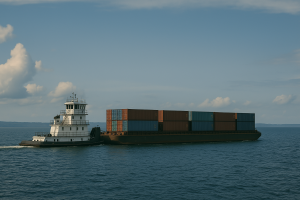When we think about clean water, we usually picture its role in keeping our bodies healthy — for drinking, cooking, and staying clean. But water’s impact goes deeper than just physical health. It reaches into the heart of our emotional and mental well-being.
Around the world, from rural villages to urban neighborhoods, the state of a community’s water supply is shaping minds, moods, and futures.
🚱 The Silent Stress of Water Insecurity
Imagine waking up each day not knowing if you’ll have enough clean water to drink, cook, or wash. For millions, that’s not just a scenario — it’s daily life.
This constant uncertainty creates chronic stress:
- Parents worry about sick children.
- Students miss school to collect water.
- Adults feel ashamed when they can’t maintain basic hygiene.
“Water insecurity doesn’t just drain bodies — it drains spirits.”
The mental toll? Anxiety, depression, and emotional fatigue. Research shows that people without reliable water access often report higher levels of psychological distress.
🌊 Water Disasters Leave Invisible Scars
Floods, droughts, and contamination crises are more than environmental issues — they are human tragedies.
- Survivors of water disasters often face PTSD, trauma, and long-term mental health struggles.
Displacement, loss of livelihood, and broken community ties leave emotional wounds that can take years to heal.
🌿 Water Is Identity, Culture, and Belonging
For many Indigenous and rural communities, water is sacred. It represents life, tradition, and spirituality.
When lakes dry up or rivers are polluted, communities experience:
- Cultural grief
- A loss of spiritual connection
- Feelings of displacement and disconnection
This phenomenon is sometimes called “solastalgia” — the pain of witnessing your home environment deteriorate.
🏙️ Urban Inequities: Who Has Access?
In many cities, water is a luxury. In underserved or informal settlements:
- Families may wait hours for water or travel long distances.
- Girls often miss school due to water chores.
- Public taps may be far or unsafe, creating stress and risk, especially for women.
This unequal access contributes to ongoing emotional strain, made worse by the feeling of being “left behind.”
💪 Community Resilience and Healing
Amid these challenges, communities are rising.
- Grassroots organizations are fighting for water rights.
- Women’s groups are leading local water committees.
- Indigenous protectors are restoring damaged ecosystems.
When people reclaim their water, they also reclaim their mental well-being.
“Access to water isn’t just about survival — it’s about dignity, healing, and hope.”
🧠 Final Thoughts
Water is life — not just for our bodies, but for our minds.
As we navigate climate change, growing populations, and widening inequality, we must treat water access as a public health and mental health issue.
Because no one should have to choose between surviving and thriving.






